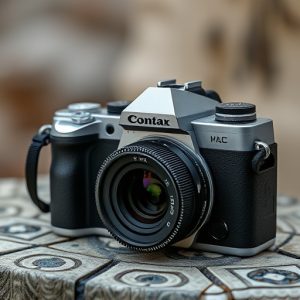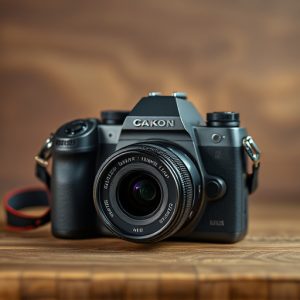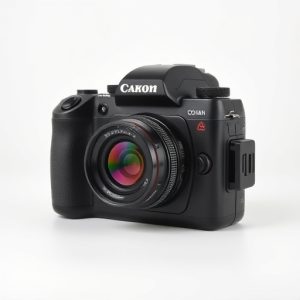Optimizing Public Safety: A Guide to Choosing Body Cameras for Law Enforcement
When purchasing a body camera for sale for law enforcement, it's crucial to select a model wit…….
When purchasing a body camera for sale for law enforcement, it's crucial to select a model with superior high-definition video capabilities for clear documentation of incidents. The camera should be highly durable with water and dust resistance to operate effectively under various environmental conditions. Infrared recording is necessary for capturing footage during nighttime operations. Battery life and charging speed are significant factors as officers need continuous use without long downtimes for recharging. Advanced features like real-time data transmission are beneficial for immediately uploading footage to secure servers, aiding timely access to evidence during investigations. Agencies must balance these technical requirements with their budget constraints to ensure the camera meets both operational needs and financial limitations.
The widespread deployment of surveillance cameras has significantly enhanced public safety by deterring crime and assisting in its investigation, providing high-quality video evidence. Body cameras for sale have become an integral part of law enforcement, offering a personal perspective on police interactions, promoting accountability, acting as a deterrent during confrontations, and serving as valuable training tools. Their adoption has improved trust between communities and police forces, contributing to a safer society.
The legal landscape governing the use of body cameras is complex, with varying state laws in the U.S. and international regulations that address privacy concerns. While advocates argue that body cameras enhance transparency and accountability within law enforcement, critics warn against potential surveillance abuses and privacy rights violations. It's imperative for manufacturers and agencies to comply with local laws and navigate the balance between security and privacy, ensuring body cameras are used responsibly in public safety efforts. Ongoing discussions among stakeholders are essential to address new challenges and maintain this delicate equilibrium.
Surveillance cameras have become a cornerstone in modern security strategies, offering a blend of deterrence and accountability. In recent years, body cameras for law enforcement professionals have emerged as a pivotal tool, capturing events from a first-person perspective. This article delves into the selection of the best body camera for sale, highlighting essential features and specifications that can aid in enhancing public safety and crime prevention efforts. It also scrutinizes the complex legal implications and privacy concerns inherent to body-worn cameras across different jurisdictions. Through an informed analysis, we aim to guide readers on the frontlines of law enforcement towards making a responsible choice that aligns with both their operational needs and the communities they serve.
Evaluating the Best Body Camera for Sale: Features and Specifications for Law Enforcement Professionals
When selecting a body camera for sale that caters to law enforcement professionals, it’s crucial to consider features and specifications that enhance both safety and accountability. A top-tier body camera should offer high-definition video recording to capture incidents clearly, ensuring any evidence collected is of the highest quality. Additionally, durability is paramount; a robust design with water and dust resistance will ensure the camera functions in various environmental conditions. Infrared capabilities are also beneficial for capturing clear footage during night operations or in low-light environments.
Another essential aspect to evaluate when purchasing a body camera is its battery life and charging efficiency. A long-lasting battery allows officers to perform their duties without frequent interruptions for recharging. Also, rapid charging technology can be a significant advantage when time is of the essence. Furthermore, body cameras designed with law enforcement in mind often come equipped with features such as real-time data transmission, which enables immediate transfer of footage to central servers for safekeeping and review. This ensures that critical events are documented and can be accessed quickly should they be needed for investigation or oversight purposes. When browsing through the myriad options available for purchase, it’s important for law enforcement agencies to identify a body camera that aligns with their operational needs and budget constraints while delivering on performance and reliability.
The Impact of Surveillance Cameras on Public Safety and Crime Prevention
Surveillance cameras have become a ubiquitous presence in urban and suburban settings alike, serving as a critical tool in enhancing public safety and deterring crime. Their effectiveness is multifaceted; not only do they provide real-time monitoring of public spaces, but they also offer visual evidence that can aid law enforcement in investigations post-crime. The footage captured by these cameras has been instrumental in identifying suspects, reconstructing crime scenes, and bringing perpetrators to justice. With the advent of advanced recording and storage technologies, the video data collected is more detailed and retrievable than ever before, contributing significantly to a safer environment for all.
In addition to publicly installed cameras, body cameras for sale have emerged as a complementary technology for law enforcement officers. These portable devices enable continuous recording from the perspective of the officer, providing an additional layer of accountability and transparency. Body cameras capture interactions between police and civilians, offering a clear record that can be used for training purposes and to ensure the integrity of public service. Their use has been shown to de-escalate situations by reminding officers of the scrutiny under which they operate. This technology not only enhances the ability to prevent crimes but also fosters trust between communities and law enforcement, leading to a more harmonious and secure society.
Navigating Legal Implications and Privacy Concerns with Body-Worn Cameras in Different Jurisdictions
As body-worn cameras become increasingly prevalent in law enforcement and security operations, navigating the complex legal landscape they inhabit is crucial. Different jurisdictions worldwide have varying regulations that govern the use of such devices, with privacy concerns often at the forefront of public debate. In the United States, for instance, the legality of body camera use is subject to state laws, which can vary significantly. The U.S. Supreme Court has established a precedent that individuals maintain a reasonable expectation of privacy in public spaces, which complicates the matter further. Proponents argue that these cameras enhance transparency and accountability, potentially reducing misconduct by officers and providing valuable evidence for investigations. On the other hand, critics express concerns about surveillance and the potential for abuse, emphasizing the need for clear guidelines on data storage, access, and sharing. For those interested in acquiring body cameras for sale, it is imperative to understand the local laws and regulations before deployment. Manufacturers and law enforcement agencies must ensure that these devices are used in a manner compliant with privacy rights while effectively serving their intended purpose of promoting public safety. The balance between security and privacy is a dynamic one, requiring ongoing dialogue between policymakers, technology providers, and civil society to address the evolving challenges presented by body-worn camera technology.


